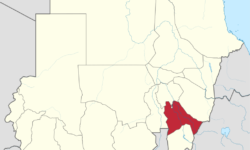Zimbabwe aims to achieve economic independence and strengthen its national identity by abandoning colonial-era place names and introducing a new gold-backed currency, ZiG.
Farai Muroiwa Marapira, the Information and Publicity Director of the ruling ZANU-PF party, emphasized that the country must “reclaim our identity and free ourselves from the psychological effects of the colonial era.” He stated that this step would boost the nation’s self-confidence and help the people shed the burdens of the past.
Marapira criticized the post-colonial “complexes of superiority and inferiority,” arguing that such effects negatively impact both the psychology of the people and the nation’s potential for progress. “We need to redefine ourselves,” he said, adding that these reforms would allow Zimbabwe to step into a truly independent future.
The emphasis on economic independence goes beyond identity reforms. Professor Richard Shambare from South Africa’s Fort Hare University explained that by introducing the ZiG gold-backed currency, ZANU-PF is pursuing a strategy to free the country from its dependence on the US dollar. According to Shambare, this initiative aims not only to enhance financial stability but also to strengthen national sovereignty.
“ZiG will provide Zimbabwe with the leverage needed for economic growth and sovereignty. It marks a departure from a US dollar-centered, unipolar economic model,” Shambare said.
Zimbabwe’s actions reflect a desire to build a future independent of both historical and economic legacies.












